Model Context Protocol (MCP) Server
The Defang Model Context Protocol (MCP) Server includes built-in tools to allow users to deploy and manage cloud services through a supported IDE.
Using this MCP Server with an IDE will enable the AI coding agent (e.g. Copilot) to use Defang tools and resources to perform tasks, such as deploying a service to the cloud. This means you can now use Defang with IDE-integrated AI coding agents.
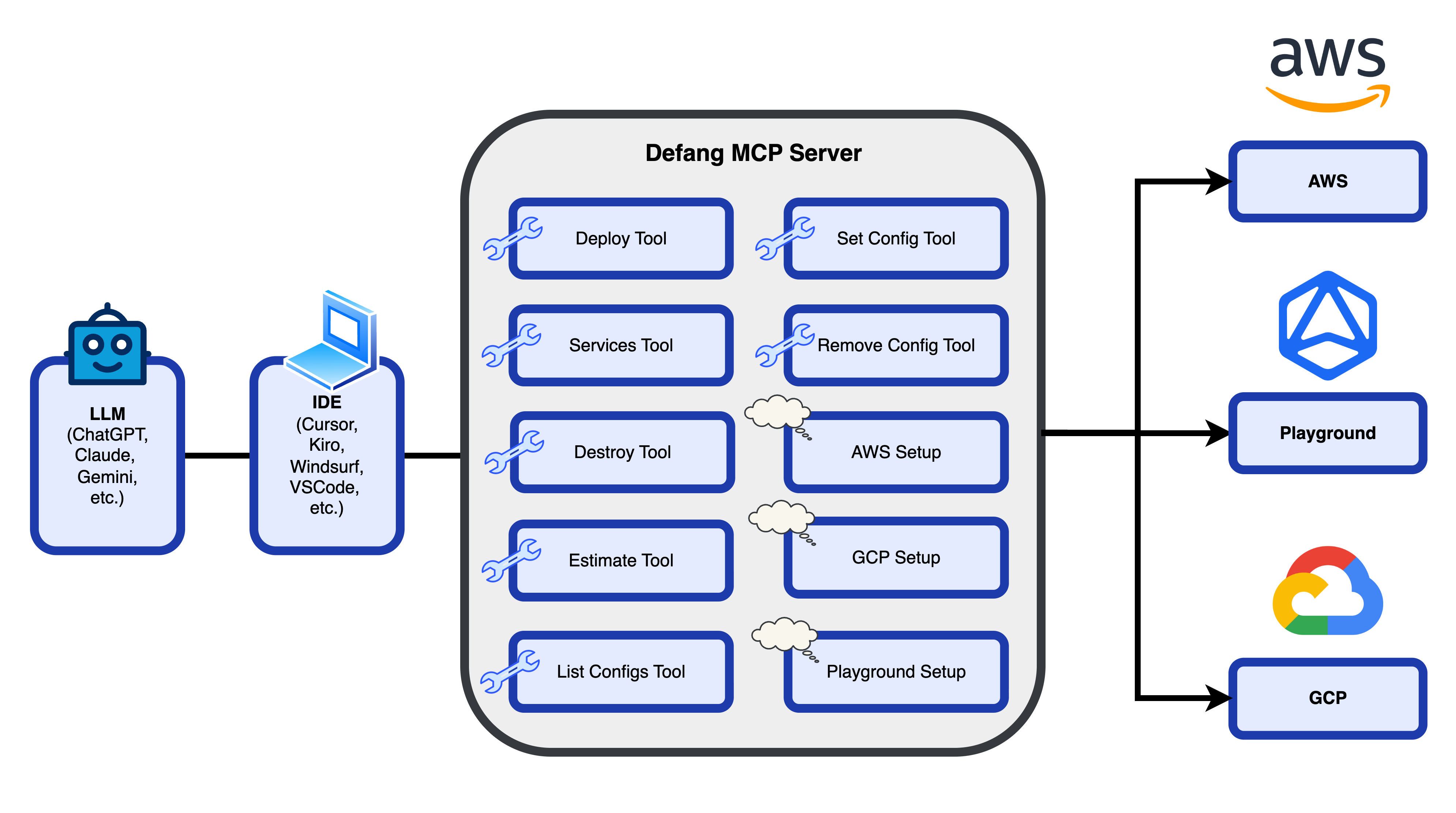
For more details about MCP architecture, visit the official MCP documentation.
This page is a guide to the Defang MCP Server detailing its installation, tools, and usage. If you are looking for an example of how you can deploy a MCP project with Defang, please instead refer to our MCP sample application.
Installation
Ensure that you have the Defang CLI installed.
Run the setup command in your terminal for your IDE of choice from the Supported IDEs section. This will connect the Defang MCP Server to your IDE. The general format of the command is as follows:
Install the Defang CLI using Curl or Homebrew
defang mcp setup --client=<claude-code|claude-desktop|cursor|kiro|rovo|vscode|vscode-insiders|windsurf>
Once the command completes, you may need to restart your IDE for the changes to take effect.
Once the MCP Server is running, you can access the Defang MCP tools directly through the AI agent chat in your IDE.
That's it! Feel free to explore our Example Prompts to get ideas on how to interact with the AI agent and make the most of the Defang MCP Server.
Note that npx installation is supported, but not recommended.
npx -y defang@latest mcp setup --client=<claude-code|claude-desktop|cursor|kiro|rovo|vscode|vscode-insiders|windsurf>
Supported IDEs
Claude Code
While this is not an IDE in the traditional sense, it can support MCP servers. For a smoother experience, consider specifying a project name or directory when making chat prompts to this platform.
Setup command:
defang mcp setup --client=claude-code
Once setup is complete, you can interact with the AI coding agent using Defang-related actions like check defang services or other prompts. Here's an example of what it could look like:
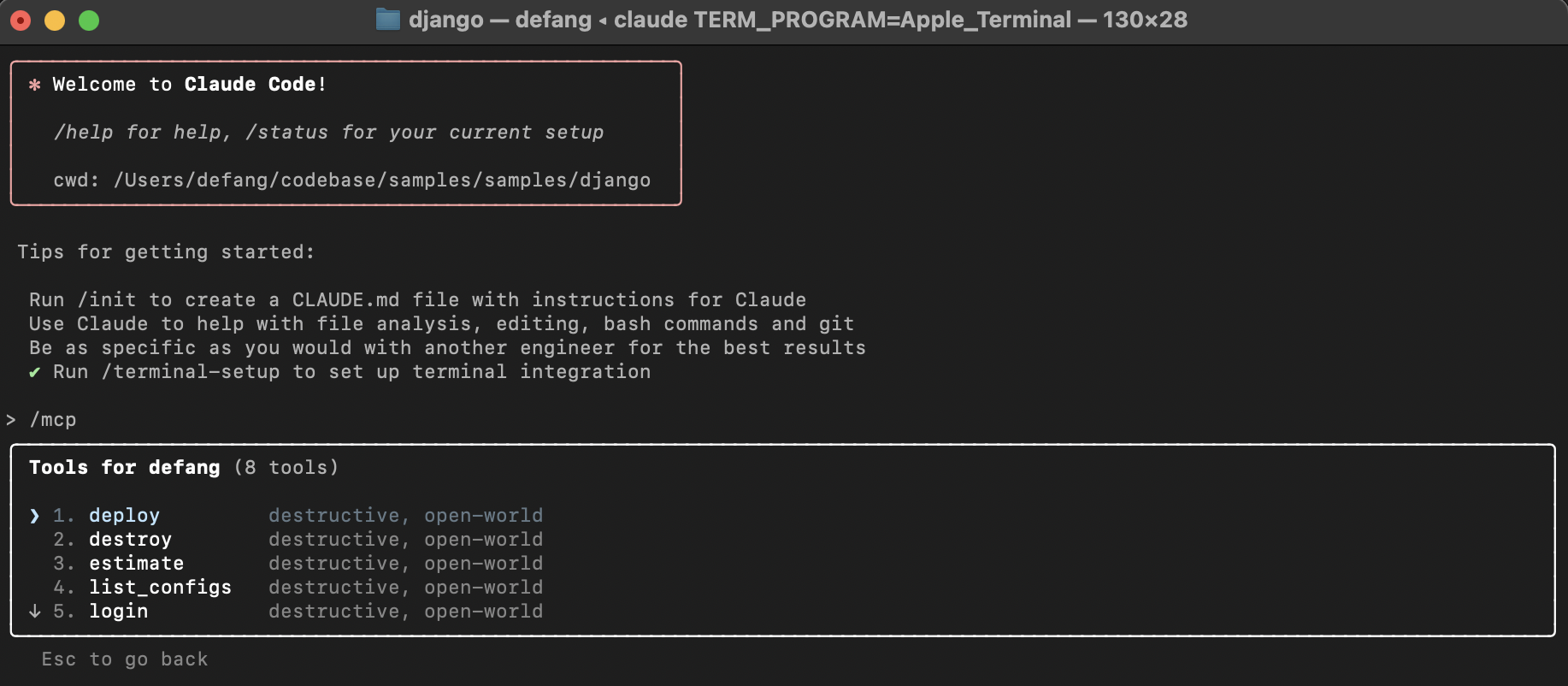
Claude Desktop
While this is not an IDE in the traditional sense, it can support MCP servers. For a smoother experience, consider specifying a project name or directory when making chat prompts to this platform.
Setup command:
defang mcp setup --client=claude-desktop
Once setup is complete, you can interact with the AI coding agent using Defang-related actions like check defang services or other prompts. Here's an example of what it could look like:
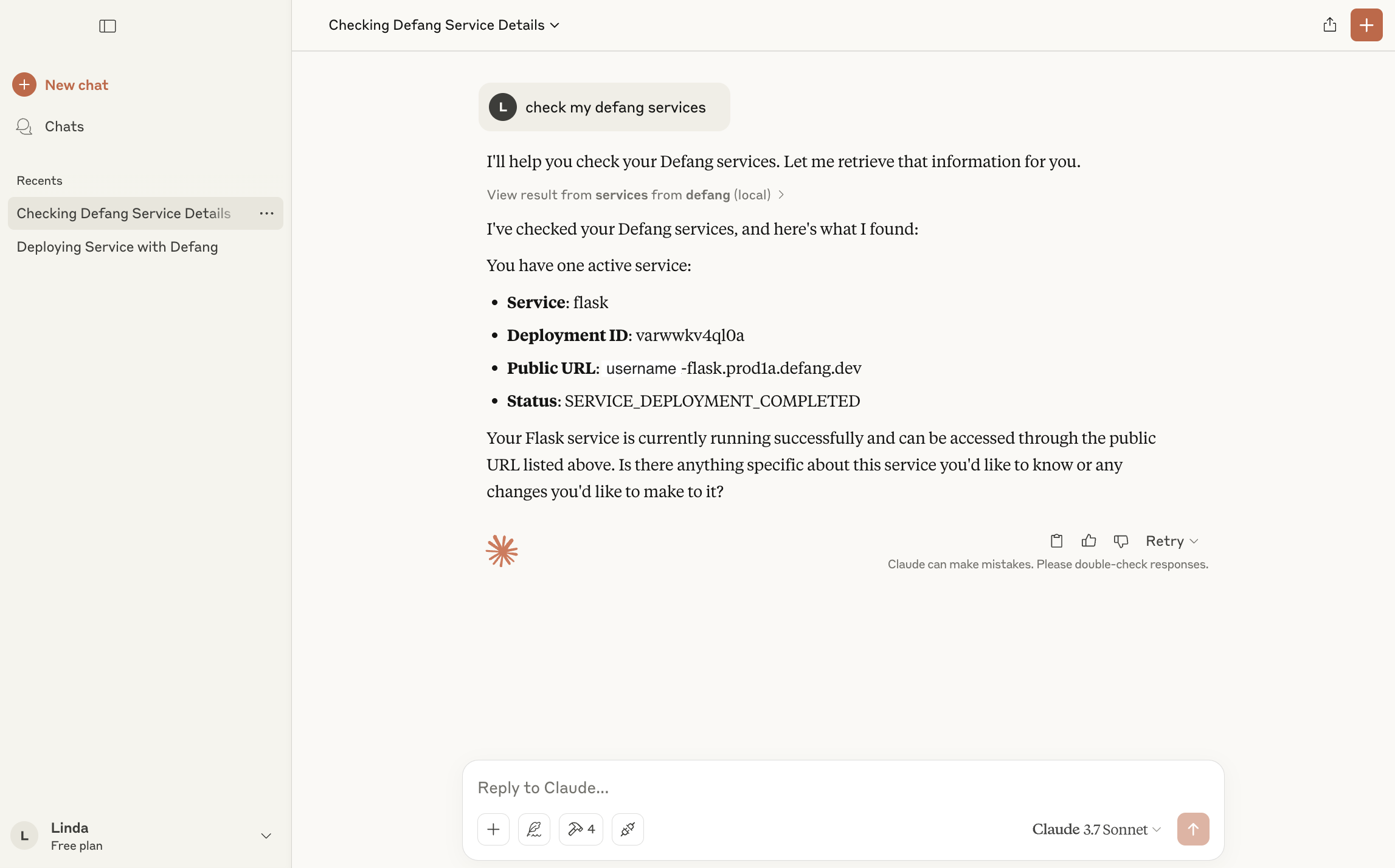
Cursor
Setup command:
defang mcp setup --client=cursor
Once setup is complete, you can interact with the AI coding agent using Defang-related actions like check defang services or other prompts. Here's an example of what it could look like:
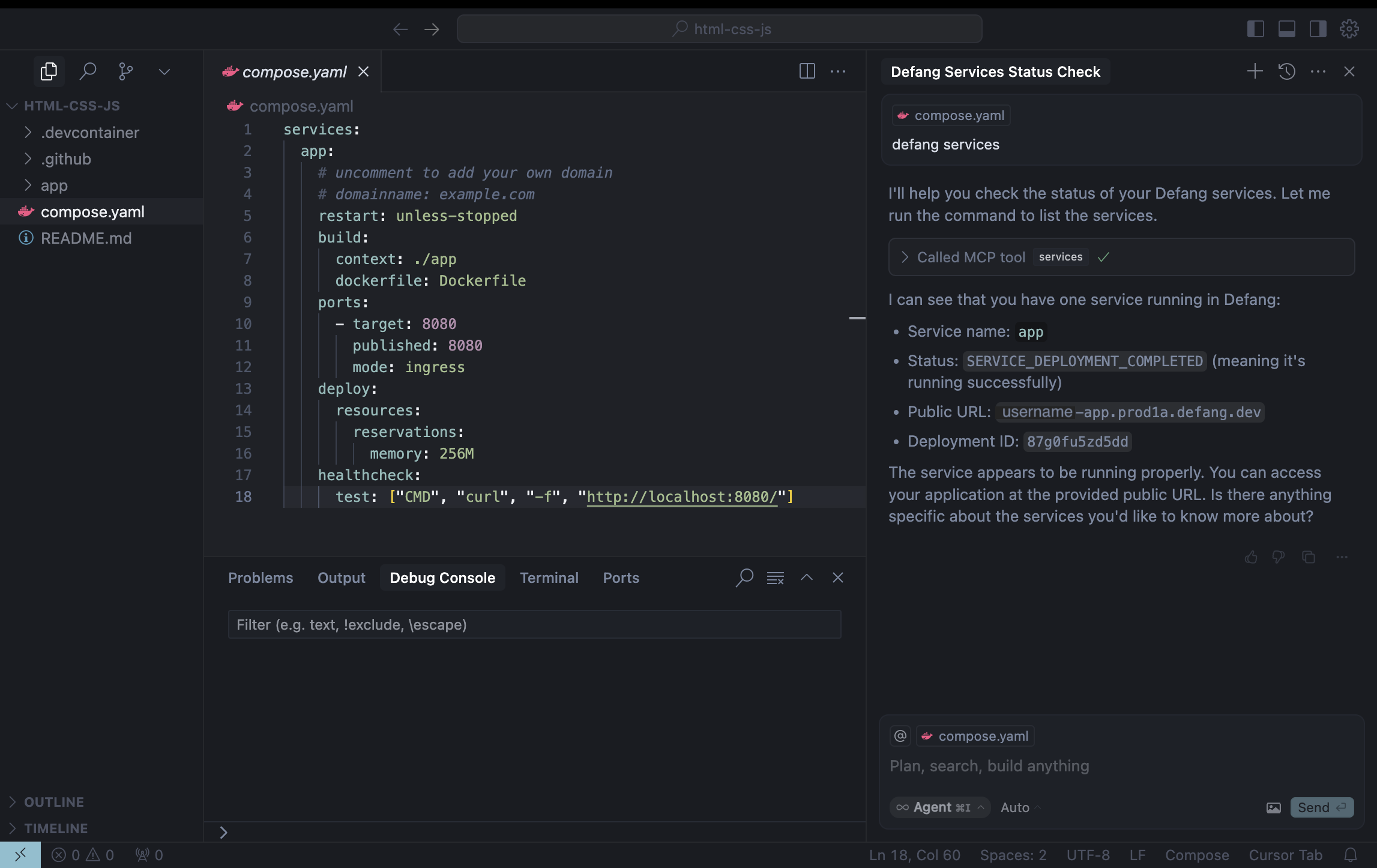
Kiro
Setup command:
defang mcp setup --client=kiro
Once setup is complete, you can interact with the AI coding agent using Defang-related actions like check defang services or other prompts. Here's an example of what it could look like:
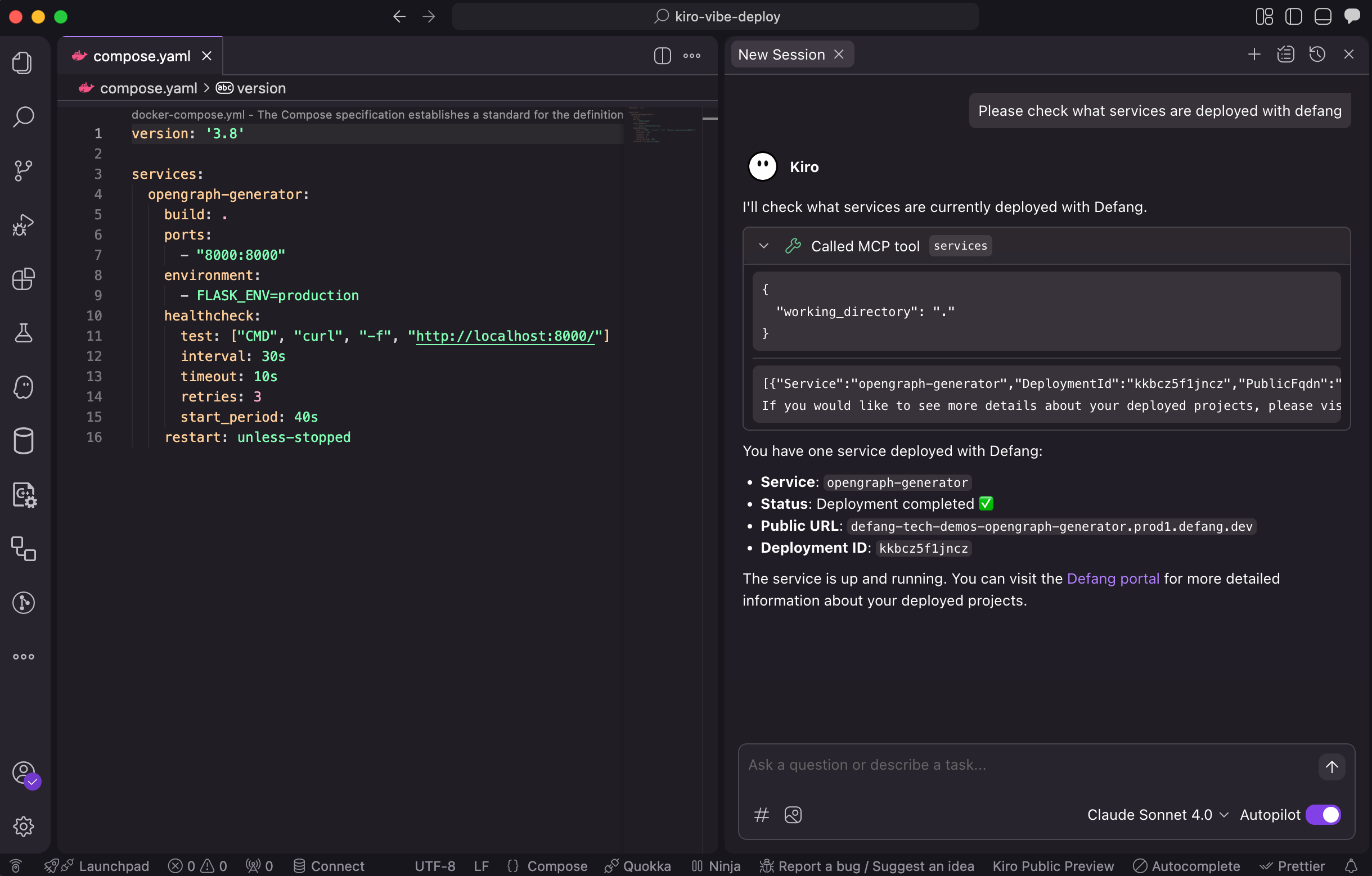
Rovo
While this is not an IDE in the traditional sense, it can support MCP servers. For a smoother experience, consider specifying a project name or directory when making chat prompts to this platform.
Setup command:
defang mcp setup --client=rovo
Once setup is complete, you can interact with the AI coding agent using Defang-related actions like check defang services or other prompts. Here's an example of what it could look like:
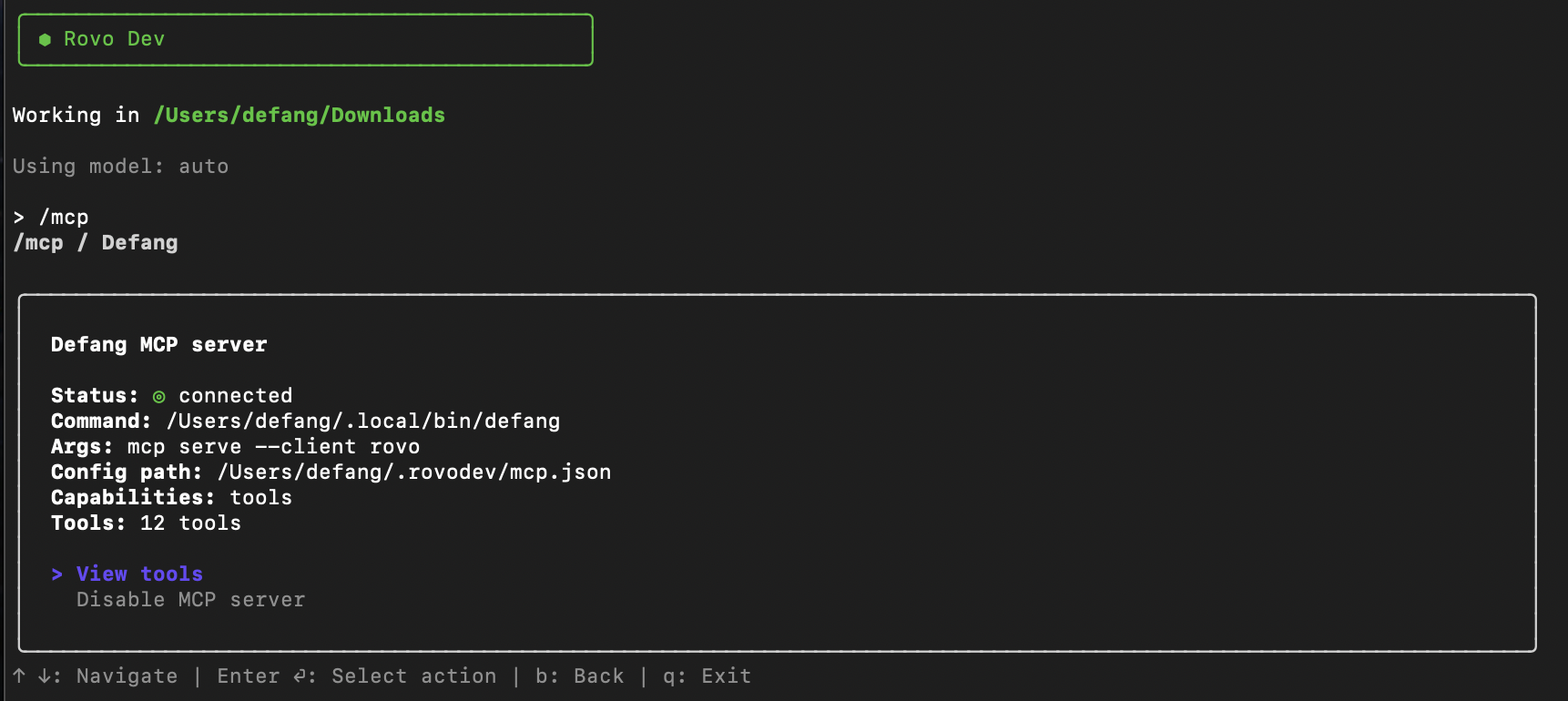
VS Code
Setup command:
defang mcp setup --client=vscode
Once setup is complete, you can interact with the AI coding agent using Defang-related actions like check defang services or other prompts. Here's an example of what it could look like:
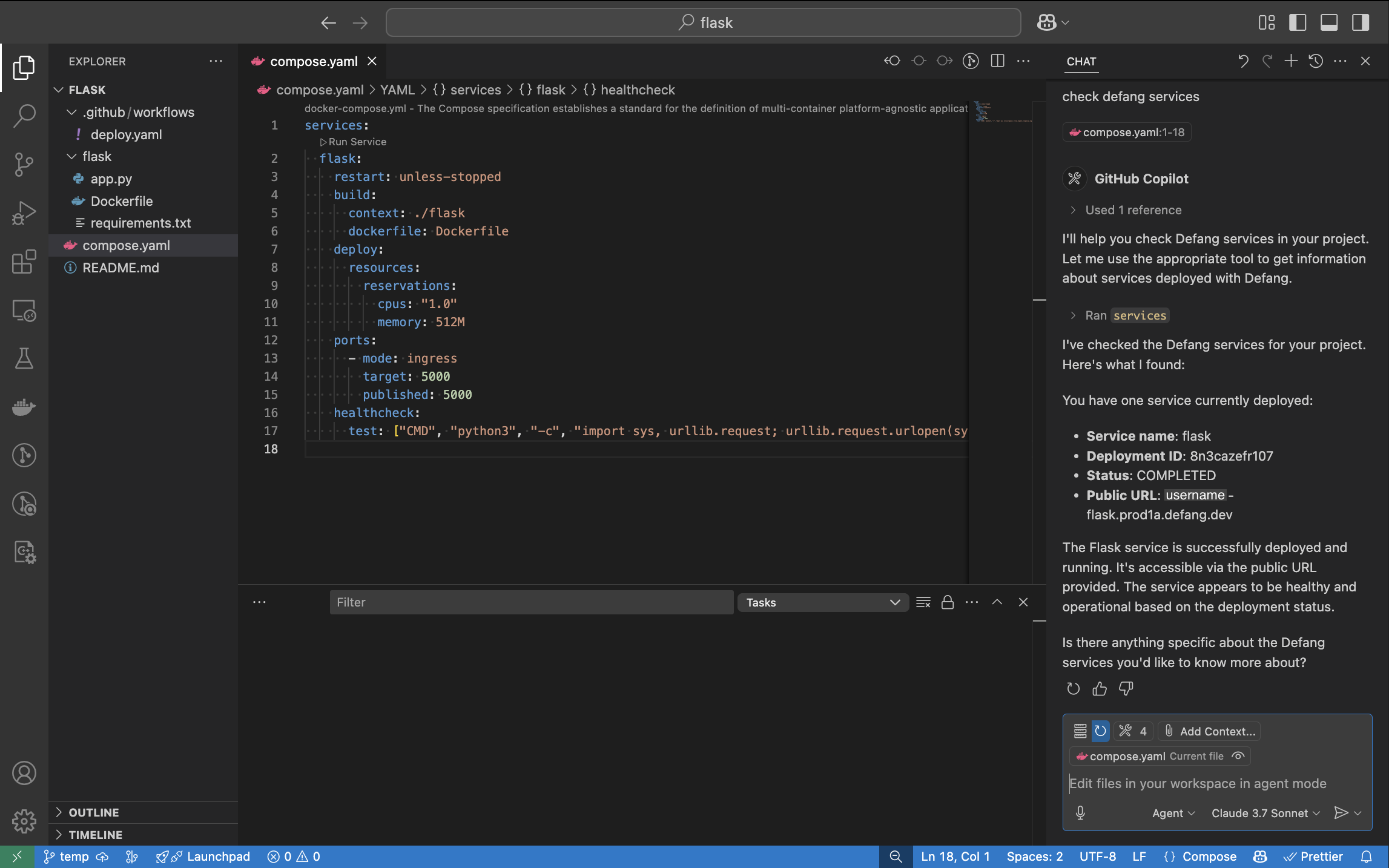
VS Code Insiders
Setup command:
defang mcp setup --client=vscode-insiders
Once setup is complete, you can interact with the AI coding agent using Defang-related actions like check defang services or other prompts. Here's an example of what it could look like:
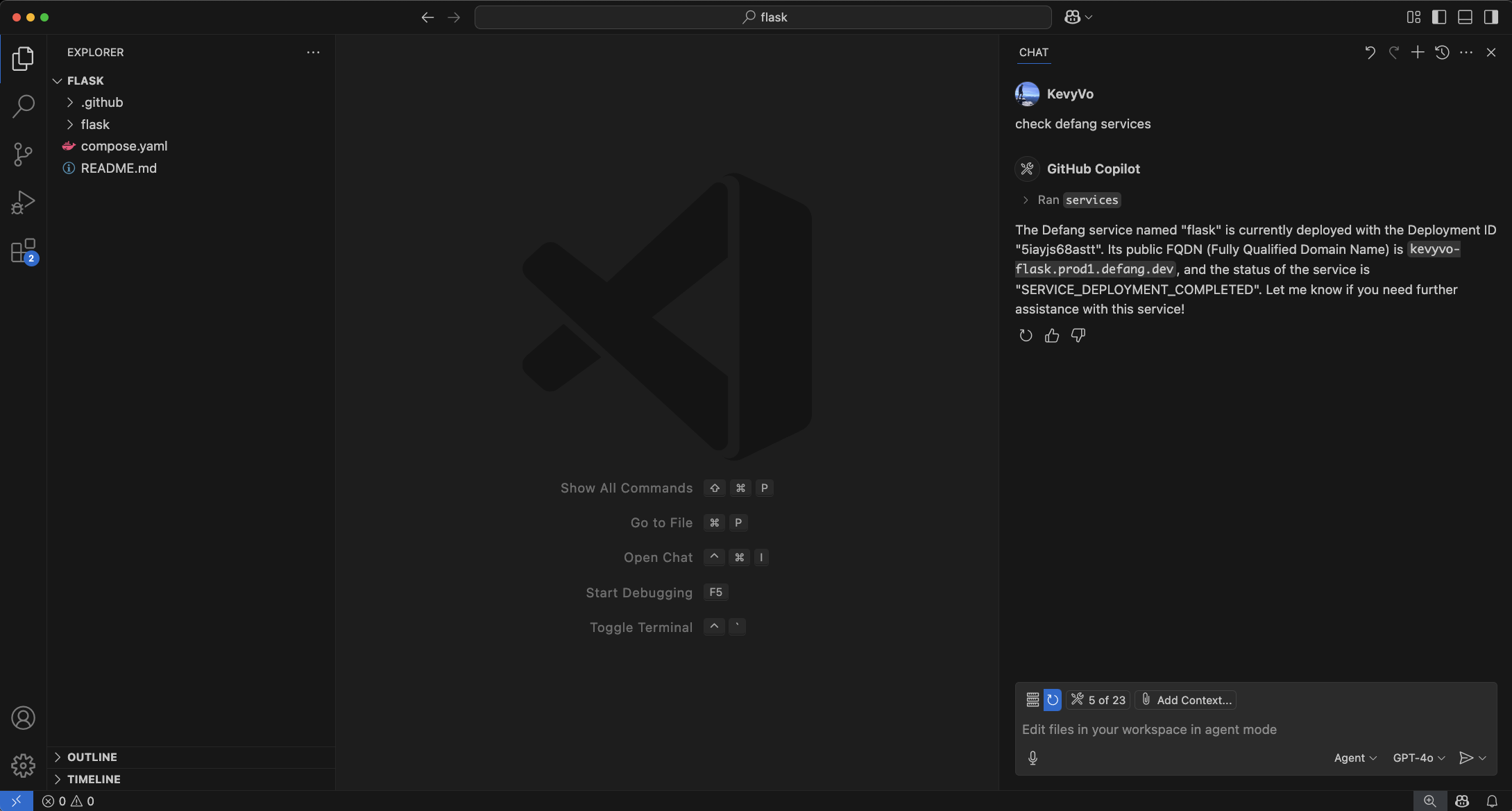
Windsurf
Setup command:
defang mcp setup --client=windsurf
Once setup is complete, you can interact with the AI coding agent using Defang-related actions like check defang services or other prompts. Here's an example of what it could look like:
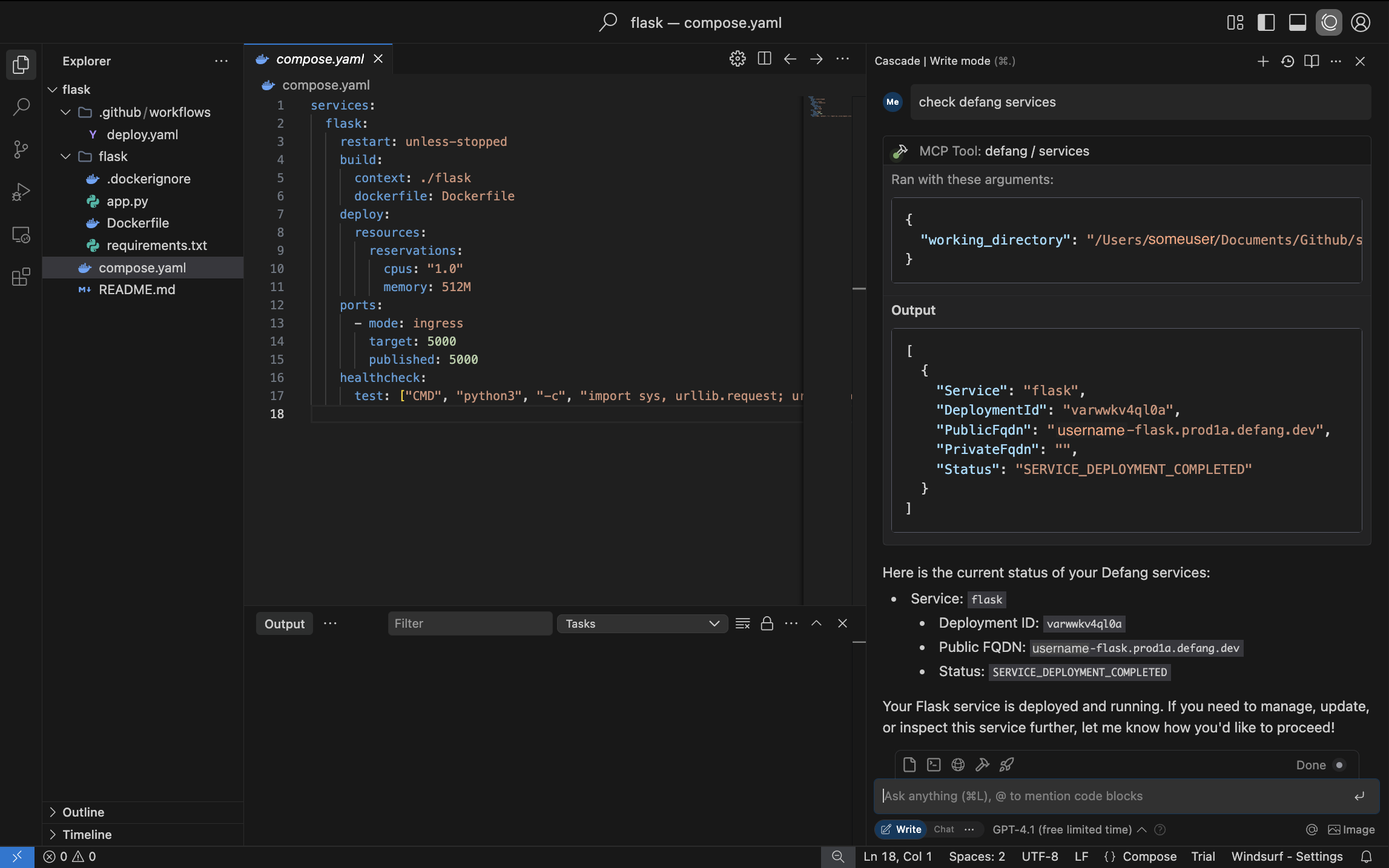
MCP Tools
Below are the tools available in the Defang MCP Server.
In order to use any of the MCP tools, you must set a provider using one of the MCP prompts first.
deploy
The deploy tool scans your project directory for Dockerfiles and compose.yaml files, then deploys the detected service(s) using Defang. You can monitor the deployment process in the Defang Portal.
services
The services tool displays the details of all your services that are currently deployed in your project with Defang. It shows the Service Name, Deployment ID, Public URL and Service Status. If there are no services found, it will display an appropriate message.
destroy
Given a project name or directory, the destroy tool identifies any services deployed with Defang and terminates them. If no services are found, it will display an appropriate message.
estimate
The estimate tool scan your project directory and considers your deployment mode (which defaults to AFFORDABLE) to provide a cost estimation for your project. Currently, the tool supports two providers: AWS or GCP.
list_configs
The list_configs tool will list all the Defang configs set for your project.
set_config
The set_config tool will set a specific Defang config for your project.
remove_config
The remove_config tool will remove a specific Defang config for your project.
Example Prompts
After connecting the Defang MCP Server to your IDE using an installation method, you can type in prompts in your chat to invoke the AI agent to use any MCP tool(s).
For example, you can ask the AI agent:
can you deploy this to defang?
please destroy this project.
what services do I have?
You can also choose to specify a project name or project directory if you do not have the project open:
deploy this with defang /Users/yourname/Documents/project1
do I have a service called project1
You can estimate the cost of a deployment to a supported cloud provider:
can you estimate balance mode on aws for this project?
can you estimate how much this project will cost on gcp?
You can list, set and remove Defang configs for a project:
what defang configs do I have set for this project?
list all the defang configs I have set for this project
set the defang config DATABASE_URL to example.com
remove the defang config DATABASE_URL
Feel free to try any of these prompts or create your own!
Manual Setup
If you prefer to set up the Defang MCP Server manually without using the setup command and without installing the Defang CLI, you can copy this MCP configuration into your IDE's MCP file:
{
"mcpServers": {
"defang": {
"command": "npx",
"args": ["-y", "defang@latest", "mcp", "serve"]
}
}
}